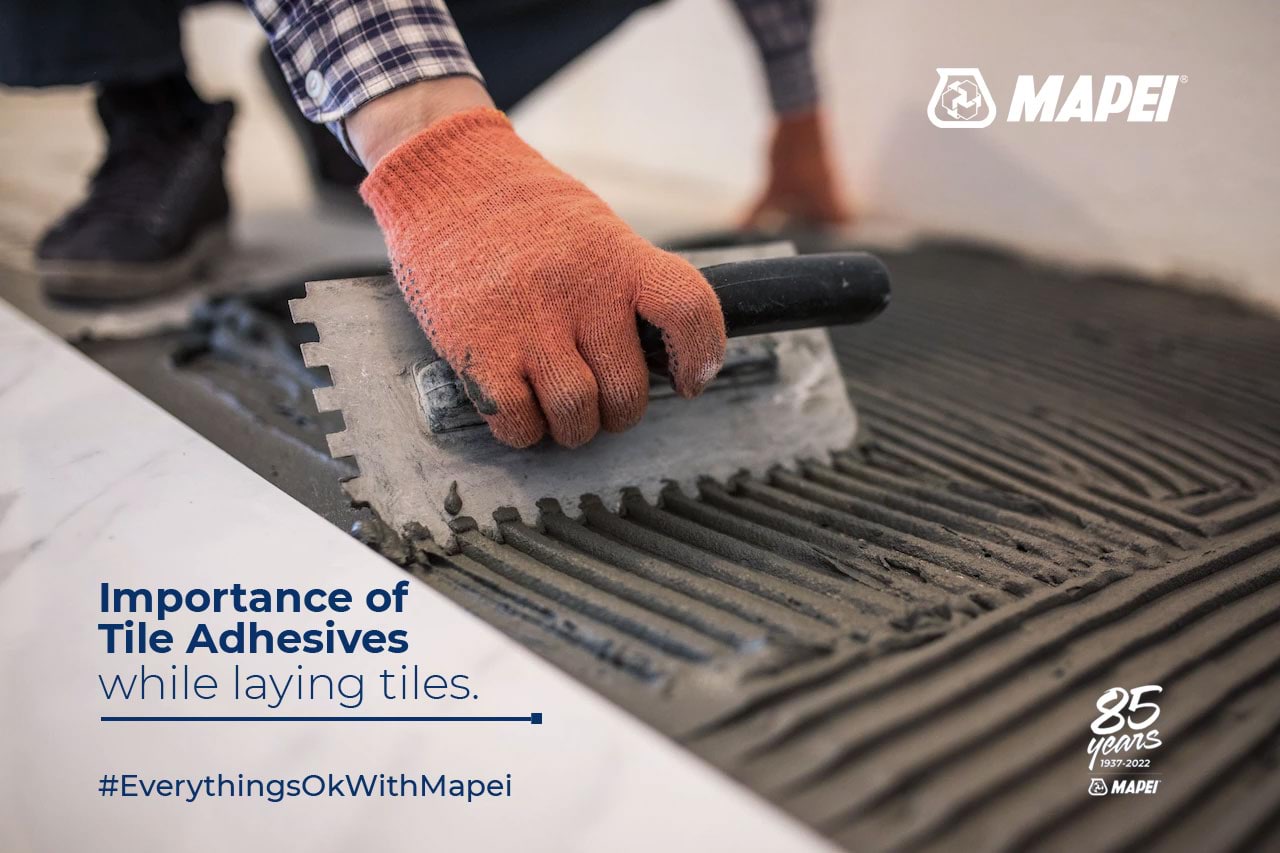
We've been utilizing sand, cement, and water to install tiles and natural stones for decades. As technology advances, so do construction techniques; fortunately, the use of adhesives has made everything appear simple and quick.
Whether it's a wall tile or a floor tile, the tile must adhere to the base surface properly. The tile glue is expected to keep the tile in place for a long time without debonding.
Tile adhesives and tile grouts are used to adhere a wide range of tiles to horizontal and vertical masonry surfaces, interior and external wall surfaces, floors, swimming pools, timber substrates, and other surfaces.
Flooring: When compared to standard sand-cement mortar, tile adhesives have a higher bonding strength. They are also waterproof and can be utilized in wet environments such as kitchens, bathrooms, and swimming pools, ceramics tile flooring. Various polymers, such as acrylic, latex, and epoxy, are employed in conjunction with the adhesives to improve their adhesive qualities.
Wall Cladding: For the application of fastening tiles on walls or wall-cladding, tile adhesives enhanced with non-skid polymers are utilized.
Fixing Glass and Mosaics: Adhesives for securing glass and mosaics are costly and of high strength. These adhesives are white in color and can be utilized in damp or submerged locations due to the presence of cement.
Tile-on-Tile application: Adhesives for tile-on-tile applications are created by combining specific polymers with the cementitious mixture. They have anti-slip and anti-shrink qualities.
Fixing Tiles on Hardwood Surfaces: Adhesives for securing tiles to plywood or a wooden basis are liquid adhesives that are blended with non-skid adhesives before being applied. They have a high bonding strength and can be employed in places that are prone to vibration.
Tile Adhesives Have a Range of Benefit
Simple to use: Because tile adhesives are ready-to-use mixes, simply add water and use. Unbox the tiles and begin arranging them on the floor without soaking them. They may be grouted in a single day without having to wait for the moisture to dry.
Fast and efficient: Apply the tile adhesive mix with a notched trowel to a one-square-metre area quickly and efficiently. Start laying the tiles after applying the adhesive and rapidly adjust inside the lines.
Quality work: Adhesives help to prevent damaged tiles, stains, and efflorescence, as well as providing excellent bonding and shear strength and long-lasting tile work.
They can be used to place tiles on a variety of surfaces, including glass mosaics, polished substrates, drywall systems, existing tiles without having to remove them, parking lots, swimming pools, industrial locations, and much more.
Economical: When installing tiles using adhesives, less material is used than when using a sand-cement combination, resulting in a lesser burden on the building structure.
There are many different types of adhesives on the market today, depending on the mix ratios and quality of the materials. Tile adhesives, on the other hand, are essential in flooring, and locating the proper substance can help you finish your job effectively.
Issues with Bonding: Sand vs. Cement vs. Tile Adhesive
A sand-cement combination is an old technique for laying tile and stone. As the name implies, ordinary Portland cement is mixed with river sand to generate a paste that may be used to install all types of tile and stone in all types of weather:
Using Tile Adhesive for Bonding:
All installations, especially those that must sustain heavy weights or regular foot traffic, require support. Voids in the adhesive layer can cause tiles to fracture or collapse when loaded, and moisture can collect in voids and cause freeze-thaw damage on exterior installations in cold areas.
However, before purchasing and applying an adhesive, you must first choose where it will be used. Because numerous types of glue are available on the market for various uses. Floor tile adhesive, for example, cannot be used on exterior wall tiles or wall tiles or ceramic tiles.
As a result, we might conclude that both are vital, depending on the reason for which they are used.
You can get in touch with us if you're looking for expert advice as well.
Comments
Load more comments